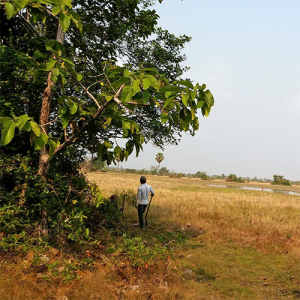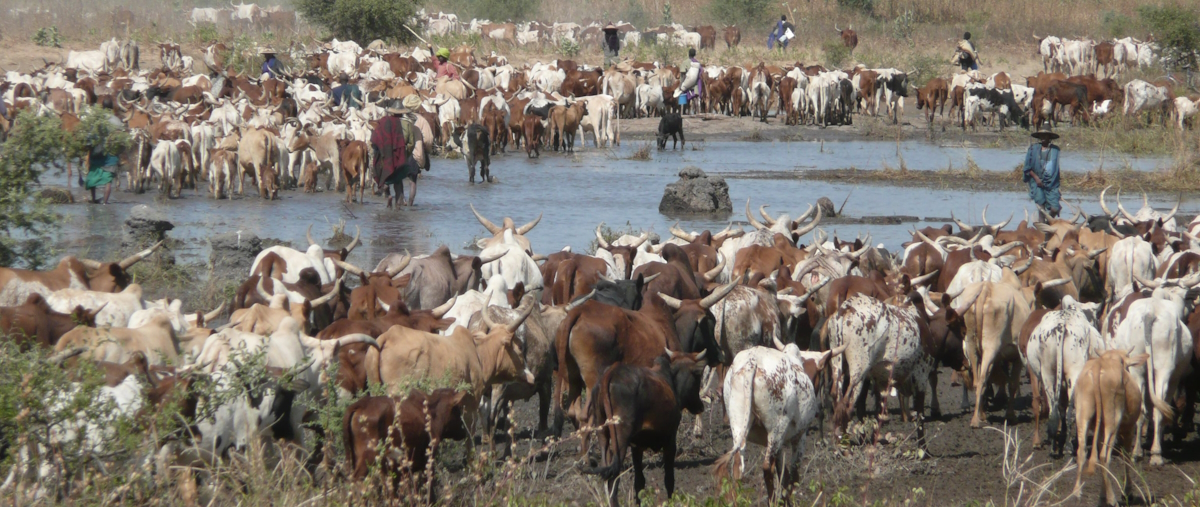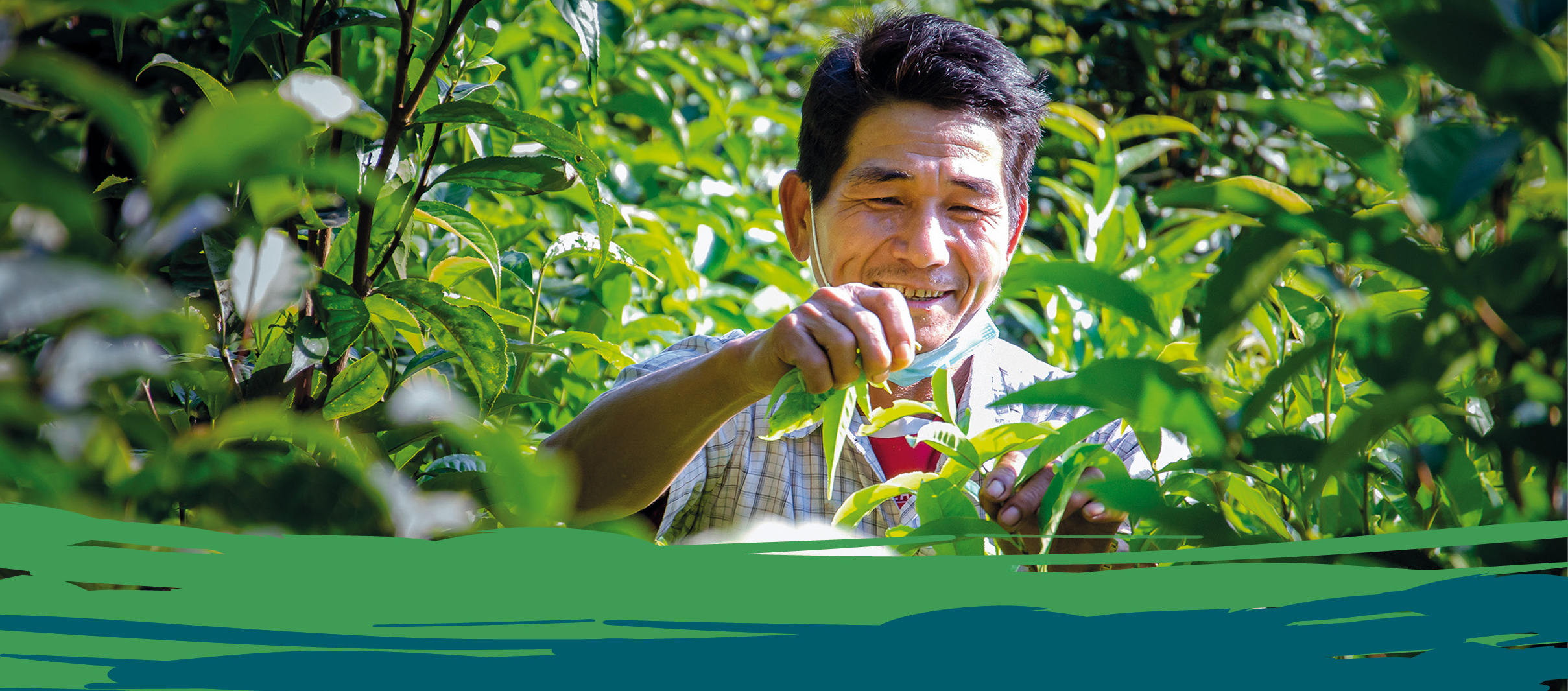At the end of May 2018, the second forum of the Mekong Region Land Governance (MRLG) project took place in Bangkok, Thailand. This project is being implemented by GRET, in partnership with Land Equity International. The forum brought together almost 300 participants, who discussed the issues of land tenure reforms and strategic support that must be provided to promote fairer, more equitable policies in the four countries where the project is being implemented (Cambodia, Laos, Myanmar and Vietnam). With the launch of a new phase of activities in July, we met with Christian Castellanet, who is working on this project, which has featured substantial political stakes since it was launched in 2014.
“Large-scale development programmes such as this necessitate work over the long term to ensure sustainable positive effects”, recalls Christian Castellanet, agriculture expert with GRET and deputy manager of the MRLG project. The project, funded by the Swiss, German and Luxembourg international cooperation bodies, was renewed for a second four-year phase, which started in July 2018 and will last until June 2022.
The countries in the Mekong region (Cambodia, Laos, Myanmar and Vietnam) have been experiencing unprecedented economic growth since the 1990s. But these evolutions have not had the same beneficial effects for everyone: rural populations who live off agriculture and forestry, and in particular ethnic minorities, have great difficulties securing land tenure and access to land and natural resources. In the countries of the Mekong region, the State considers itself the ex officio owner of land. While governments recognise the right for family farmers to permanently occupy a number of plots for the cultivation of irrigated rice, uplands, plains and mountainous regions do not benefit from the same treatment. In these areas, there is practically no recognition of farmers’ land ownership.
With a view to generating sound economic development in their countries, the States of Cambodia, Laos, Myanmar and Vietnam decided approximately fifteen years ago to allocate large areas of land – officially public land – to private investors, via long-term concessions (30 to 99 years). Approximately half of these investors are national firms, and the other half are investors from neighbouring countries (China, Thailand and even Vietnam) or multinationals. However, a large portion of areas allocated to concessions were until recently occupied by village communities practising small-scale farming and community forestry. Entire villages have therefore been deprived of the land they had been occupying for generations, sometimes with offers of relocation or compensation that do not match the losses caused, contributing to the impoverishment and instability of these populations.
Encouraging responsible agricultural investments and solving conflicts
This situation has generated numerous conflicts in these countryside areas. It was denounced by civil society, despite sometimes serious limitations on freedom of opinion and information, and has become a real political and societal issue. In 2012, a moratorium was finally declared by the governments of Laos and Cambodia, which made it possible to cancel some concessions. In Myanmar, large-scale allocation of land has slowed down considerably since the beginning of the democratic transition, but the situation remains very tense and confused in zones experiencing armed conflict.
Direct investments in agriculture through these companies can be beneficial for the development of countries. But it is clear that commitments undertaken have not always been respected by lessees, and that results in terms of production, employment and tax revenues have been globally disappointing. “Today, we have two objectives. Firstly, to ensure that these populations can give “free and informed consent” before the launch of any new investment project affecting their land; or, if they are evicted for reasons of public interest, to ensure that they obtain fair compensation. This will necessitate prior information sessions in the local language. The second objective is to support innovative projects defending the rights of local populations faced with these major investments”, explains Christian Castellanet.
“For example, the MRLG project encourages projects such as that of the Finnish forestry company, Stora Enso, in Laos, which committed to negotiating and obtaining consent from communities before starting new forestry plantations, with contracts stipulating various types of compensation for the use of their customary land, and the support of a local NGO that ensures the conditions of free and informed consent are fully met and helps the company to communicate with communities. This type of approach can be of interest not only to the communities concerned, it can also be of interest to companies. If the process is clearly explained to communities, and if they have the possibility of remaining on their land or of receiving satisfactory financial and non-financial compensation, open conflicts should in the future be limited and the companies that invest can develop their activity in peace, without having to face social conflicts,” adds Christian Castellanet.
The MRLG project also supported mediation processes aimed at solving pre-existing conflicts between communities and companies, particularly in Cambodia. In this case, companies are often forced to negotiate, either because their international financiers have received complaints and must take measures to solve conflicts as part of their own commitments relating to corporate social responsibility (CSR), or to protect their public image in their country of origin. This is the case, for example, with European or American companies targeted by civic campaigns, which are sometimes the subject of legal complaints for breaches of human rights on their plantations. In cases such as these, the MRLG project attempts to promote new compromises, where everyone wins, for example by enabling communities to recover a portion of plantations and to sell their production to the agro-industrial company, with fair contracts.
Promoting recognition of customary rights and minority rights
The evaluation of the first phase of the MRLG project recommended unifying the actions implemented. “With 80 local partners and a team of approximately twenty people spread over four countries, we can say that this will necessitate strong coordination. The balance between national autonomy and the will to conduct a collective action is a crucial point. The key to success resides in regular exchanges, work meetings and upstream planning, because nothing can replace a relationship of mutual trust”, specifies Christian Castellanet.
This confidence must also be created with local stakeholders in the Mekong region. To do this, phase 2 of the project plans to accentuate its advocacy activities in order to facilitate recognition of customary rights. The objective is to be included in processes already underway by helping key stakeholders in processes to participate in discussions on current proposals for laws, and by supporting the creation of alliance networks from private sectors such as research at various levels.
This recognition of rights can also be achieved by acknowledging the legitimacy of ethnic minorities’ traditional practices. Hence the importance of collecting and compiling data concerning traditional practices, in order to explain them, highlight them and conserve them. A guidebook was published on this subject. Entitled “Documenting Customary Tenure in Myanmar: a guidebook” (in English and Burmese), this guidebook aims to list techniques, village land and families’ land to ensure they are passed down to the younger generations. This project received support from GRET’s team specialising in land tenure in Myanmar, directed by Céline Allaverdian.
Lastly, phase 2 of the project also plans to integrate consideration of gender equality issues, in order to evaluate if specific actions for men and women are necessary.






